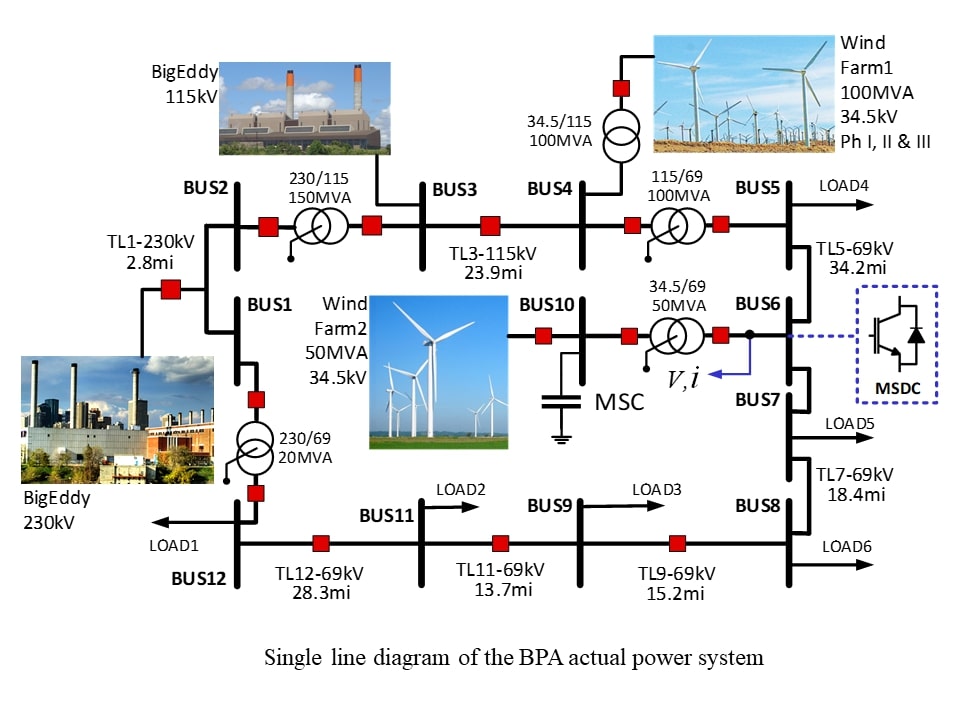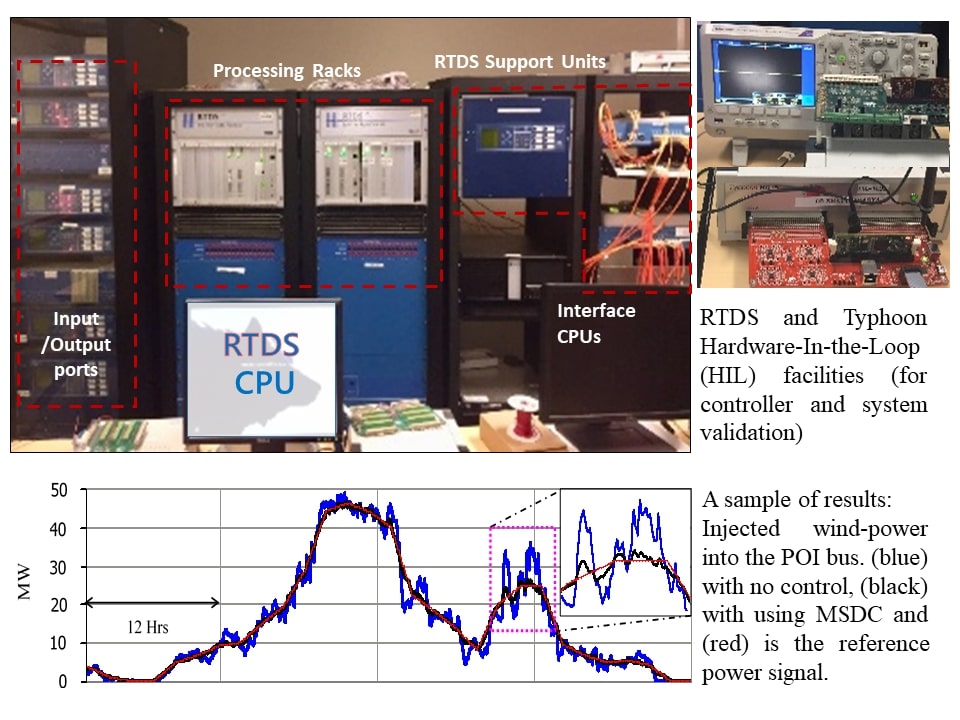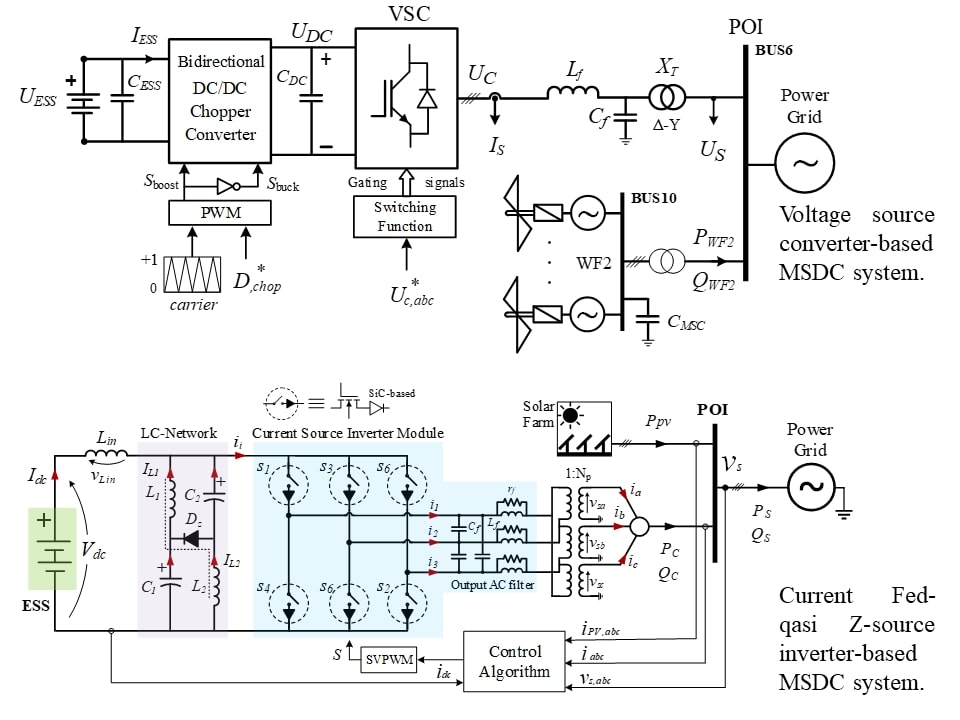Modular Static Controllers for Distributed Renewable Energy Resources
Faris E. Alfaris
Funding Source: NSF
Objective: The intermittent nature of renewable energy resources, and problems due to the interfaced power converters, inevitably poses undeniable challenges to the power grid. In addition, the frequency stability issues result in limiting the amount of the injected power. The Flexible AC Transmission Systems (FACTS) are commonly used to enhance the power quality and compensate the reactive power at the renewable DERs point of common coupling. However, an effective power conditioning system is required to effectively compensate for frequency oscillations, besides the other FACTS functionalities. A versatile power electronic device is proposed in this work, to facilitate the integration of a large-scale renewable energy resources in relatively weak power networks.
Summary: A versatile power conditioning device, named as a modular static distribution controller (MSDC), was proposed to facilitate the integration of a large-scale wind farm (WF) into a weak power system (Bonneville Power Administration-BPA). The main consideration in designing the device control circuit is the frequency oscillation dominant, through dynamic power balancing. In addition, the device can conduct other functionalities as provided by shunt-connected FACTS, where this device can be connected at medium voltage bus to perform several tasks, simultaneously or selectively, in order to improve the injected power quality and dynamic performance to meet the technical specifications required in grid codes. The year-round simulation analysis, adopted by Real Time Digital Simulator (RTDS), indicate that the proposed solution is feasible and has the ability to achieve the desired function with the size of 10 MVA. Another path of this project is to implement the proposed MSDC system with recently proposed Current Source Inverters (CSIs), that were improved using Wide-Band Gap (WBG) power switches. The Current-Fed quasi Z-Source Inverter (CF-qZSI), constructed by Silicon-Carbide (SiC) switches, was examined when utilized to empower an energy storage system (ESS), to take the proposed MSDC to a higher level of system performance and packaging.
Impact: The integration of distributed renewable energy generation can be facilitated, consequently, increase the accommodation of more distributed generations. Moreover, power management/stability and security of the attached power resources (in case of micro-grid) are also can be enhanced with the proposed power solutions.



